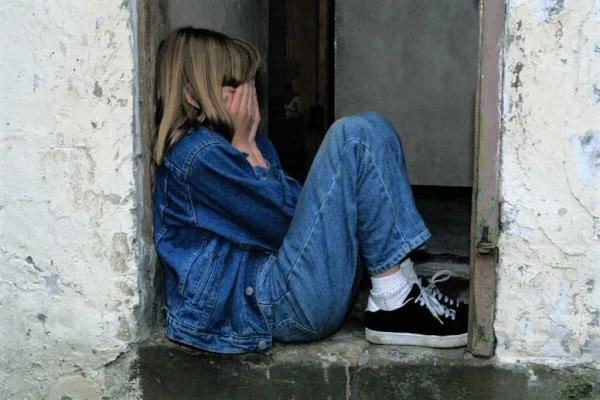21 Psychological Facts About Sadness (2023) Most People Don't Know I Interesting Facts
Curated from: newinterestingfacts.com
Ideas, facts & insights covering these topics:
24 ideas
·15.6K reads
56
Explore the World's Best Ideas
Join today and uncover 100+ curated journeys from 50+ topics. Unlock access to our mobile app with extensive features.
There’s no guarantee that you’ll feel ecstatic after this post. But you will feel wiser and somewhat of a therapist after learning these psychological facts about sadness. So the next time you need to be someone’s shoulder to cry on, you won’t feel too awkward.
If that’s what you’re looking for, or you simply want to impress your peers with some lesser-known facts about sadness, then stick around. Get your notepad and pen out and morph into an expert on emotion, things are about to get intense.
49
940 reads
23 Psychological Facts About Sadness
The word “sad” or “sadness” comes from a Middle English word that commonly refers to “firmness, toughness, permanence, solidness, and maturity.”
Today we know it as an emotion that describes sorrowfulness, hopelessness, disappointment, and other woeful feelings. When we feel sad, our mood is dampened, and our energy is low. However, there is more to sadness than just feeling, read on to see why.
52
956 reads
1. Not Everyone Can Cry When Experiencing Sadness
While most people tend to shed a tear when they’re sad, some can’t seem to shed any. You feel sad or depressed, sense a tingling behind your eyes, yet the tears won’t fall. This inability to cry can be due to medical and emotional reasons.
Certain medications, symptoms of depression such as anhedonia, repressed emotions, and conditions like sjögren’s syndrome are all possible explanations.
52
965 reads
2. Sadness and Mental Health Issues Often Go Hand-in-hand
Depression is an illness that is closest associated with sadness. However, sadness can be a symptom of many other health issues, such as bipolar disorder, seasonal affective disorder (SAD), and anxiety disorders .
48
914 reads
3. Women Experience Sadness Differently from Men
Women experience depression twice as much as men , making them more prone to sadness. And due to the roller coaster ride that is female hormonal changes, you can imagine how things like premenstrual syndrome (PMS) can affect their mood.
49
889 reads
4. Do Animals Experience Sadness?
There are still many people who believe that their animals can’t experience emotion. Animals have emotions. They feel love , happiness, fear, anxiety, anger, depression, and sadness.
In fact, there’s a polar bear named Arturo who’s been dubbed the “world’s saddest animal” by animal rights activists. Also, many animals show grief at the loss of a loved one or close friend.
52
806 reads
5. What’s the Difference Between Sadness and Depression?
Anyone can feel sadness at any time for short periods but will return to their everyday lives shortly. A dramatic film about loss can make you cry, and hearing bad news or having a frustrating altercation can all make you sad momentarily.
Depression, on the other hand, spans over more extended periods, weeks, months, and even years. It’s a mental condition that affects your emotions, behavior, thinking, and physical well-being. However, the primary symptom of depression is sadness, which makes it hard to distinguish between the two.
50
757 reads
6. Sadness is One of the Basic Emotions
According to psychologists, we have six basic emotions: sadness, fear, anger, happiness, surprise, and disgust. All the other emotions spring from the basic ones. These emotions respond to activities in some areas of the brain.
Sadness is associated with a part of the brain that is strongly linked with memory, and this association is what triggers the feeling of sorrow.
53
668 reads
7. What Are Sad Tears Made Of?
Did you know that humans have a variety of tears? There are three types: emotional tear, reflex tear, and basal tear. All of these are necessary for good eye health . Here’s an interesting one. Tears mainly consist of water, but it also contains sodium (which gives them that salty taste), fatty acids, and over 1,500 types of proteins!
54
690 reads
8. Tear Catching History
During ancient Roman times, those in mourning often collected their tears in glass vials or cups and then placed them in burial tombs to express their love. But this is probably not your first time hearing of this. Humanity has a 3,000-year-long tear bottle history . From the Old Testament to the Victorian Era, tear bottles, or lachrymatory , are still used today.
50
609 reads
9. Why Do We Like Sad Stories?
The works of none other than William Shakespeare have tremendously influenced western society. And many of his plays involve tragedy and sadness. But why do we value tragedies so highly?
Studies have shown that consuming sad stories allow us to experience sadness without anxiety. We can relate to these stories, and they’ll make us feel better about our troubles.
50
607 reads
10. Artificial Intelligence May Feel Sadness One Day
Currently, AI cannot replicate human emotions, but studies suggest they may be able to mimic certain expressions in the future. And many scientists have put forward that machines could face depression more so than other emotions.
49
623 reads
11. How to Combat Sadness
If you want to feel better, there are some things you can do to lighten your mood. While these cannot cure depression, they may make you feel better in moments of sorrow.
48
636 reads
- Allow yourself to cry and feel sad. Denying sadness might lead to more damage than good. You’ll end up frustrated and stuck feeling down for much longer.
- Listen to cheerful music, write down or draw your feelings, and spend some time with your loved ones.
- Cuddling up with a partner or your pup , a bowl of ice cream , and your favorite show is a sure way to dry up your tears.
- If your sadness is prolonged and feels inescapable, you will significantly benefit from seeing a professional.
54
564 reads
12. What to Eat When You Are Unhappy?
Certain foods can help boost your mood, and before you know it, you’re happy again. This is because when you eat carbohydrates, your brain gets triggered to release the mood-lifting neurotransmitter serotonin.
While these healthy snacks may not cure your depression, have a bite when feeling down the dumps. Food containing omega-3s, selenium, and vitamin D, such as dark chocolate, fatty fish, and berries, are great at boosting your mood.
50
567 reads
13. Emotional Dreaming
Ever woke up crying? You’re not alone. Emotional dreams are common. These dreams bring out strong emotions, often involving tragedies such as your partner cheating , death, or injury. Crying in your dreams could indicate that you need to share your innermost feelings or concerns with someone you care for.
51
544 reads
14. Why Do Some Songs Make You Gloomy?
While music can cheer you up when you’re feeling down, it can also have the opposite effect. The lyrics and emotional expression of instruments in sad songs can trigger an empathetic response.
In fact, the violin and other string instruments are best at conveying sadness, fragility, tranquility, sympathy, and coldness. At the same time, instruments like the trombone and trumpet tend to express excitement and vibrancy. These are all sounds that bring out specific emotions in music that will ultimately affect our moods.
50
435 reads
15. Some People May Be Addicted To Sadness
Know of someone who is constantly followed by a cloud of doom and gloom? Well, some people find sadness soothing. Scientists have discovered a link between negative emotions and the reward centers in the brain, suggesting that sadness can be addictive.
47
488 reads
16. Saddest Country in the World
South Sudan is currently ranked the “unhappiest country in the world.” Sudanese citizens are drowning in misery due to environmental and physical factors. A huge reason is the civil wars and epidemic hunger ravaging this country.
48
529 reads
17. What Happens to the Body When We’re Sad?
When feeling sad, the body also goes through some physical changes. Stress-related opioids in the brain are altered, and so are the levels of inflammatory proteins in the blood. Unfortunately, these specific proteins are attached to an increased risk of comorbid diseases .
49
509 reads
18. Can Sadness Affect Relationships?
Sadness caused by depression can gravely affect your relationship with others. You’re less likely to enjoy interaction with your loved ones. You might pay less attention to your partner . Regardless of how you act out, constant sadness can hamper your relationships with family and friends.
48
475 reads
19. Too Much Sorrow Can Hold You Back in Life
Despair and demotivation are closely related symptoms of depression. These psychological factors share a cause-and-effect relationship. Being in a state of misery for a long time can demotivate you and eventually stand in the way of your goals.
You need a positive and happy mindset to stay motivated, but sadness and depression can make you static.
49
462 reads
20. When You Feel Sad While Pregnant, So Does Your Baby
Here’s a fact you may not have expected (get it?). Multiple research alludes to the fact that babies in the womb can feel the same emotions as their mothers. So moms may want to consider avoiding sadness throughout their pregnancy.
49
490 reads
21. It’s All in Your Genes
Whether or not you become sad or depressed can be determined by your genes too. Psychiatrists do consider a family history of depression when dealing with patients. While this may not be the most significant factor, it can explain why one person becomes depressed, and another doesn’t.
49
556 reads
IDEAS CURATED BY
CURATOR'S NOTE
21 Psychological Facts About Sadness Most People Don't Know
“
Tom Joad's ideas are part of this journey:
Learn more about psychology with this collection
The value of hard work and persistence
How to stay focused on long-term goals
How to learn from failures and setbacks
Related collections
Similar ideas
44 ideas
41 Psychological Facts About Crying
newinterestingfacts.com
26 ideas
21 Fascinating Psychological Facts about Relationships (2022) Most People Don't Know
newinterestingfacts.com
42 ideas
39 Psychological Facts About Friendship (2022) Most People Don’t Know I Interesting Facts
newinterestingfacts.com
Read & Learn
20x Faster
without
deepstash
with
deepstash
with
deepstash
Personalized microlearning
—
100+ Learning Journeys
—
Access to 200,000+ ideas
—
Access to the mobile app
—
Unlimited idea saving
—
—
Unlimited history
—
—
Unlimited listening to ideas
—
—
Downloading & offline access
—
—
Supercharge your mind with one idea per day
Enter your email and spend 1 minute every day to learn something new.
I agree to receive email updates










